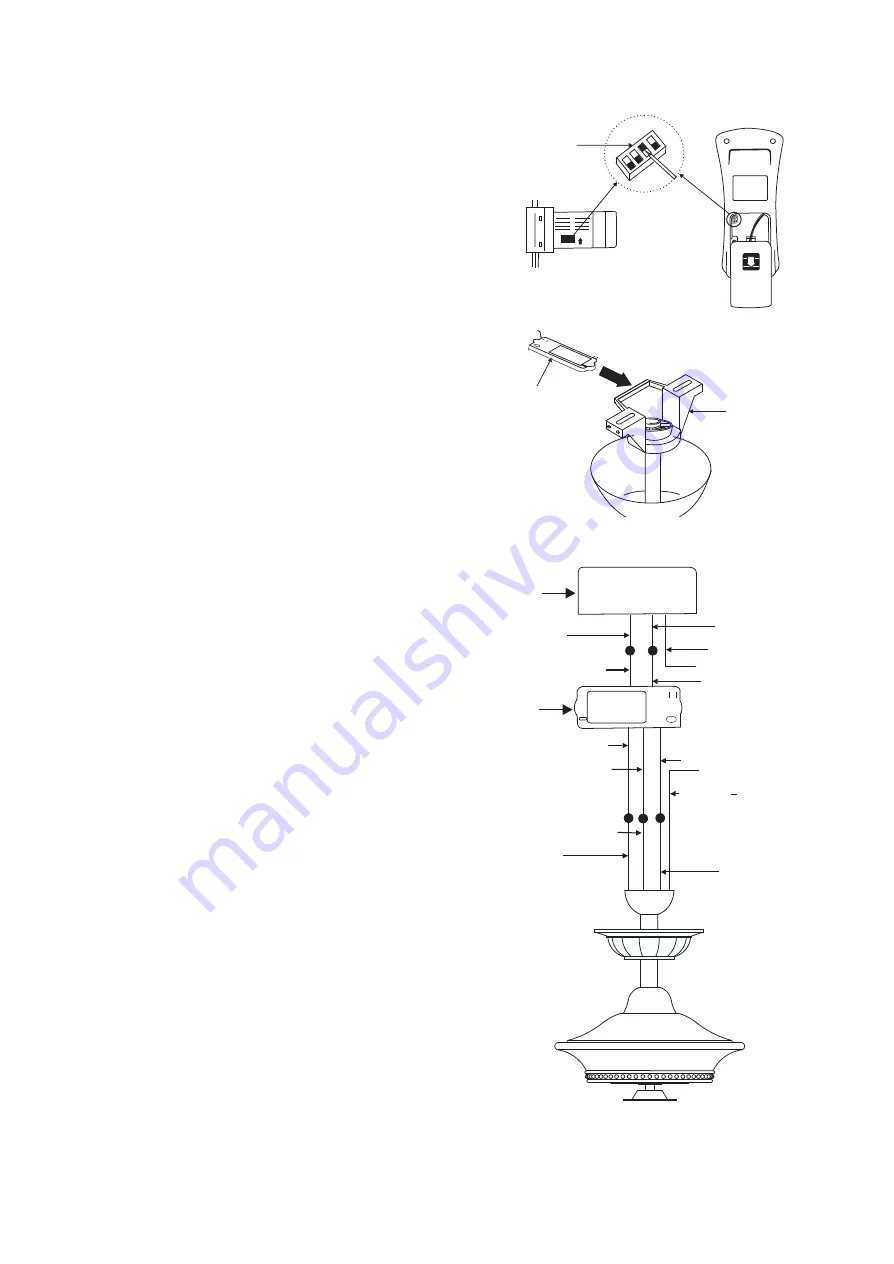
5
If you feel you do not have enough electrical wiring
knowledge or experience, have your fan installed by
a licensed electrician.
Follow the steps below to connect the fan to your
household wiring. Use the wire nuts supplied with
your fan. Secure the wire nuts with electrical tape.
Make sure there are no loose strands or connections.
This remote control unit is equipped with 16 code
combinations to prevent possible interference from or
to other remote units. The frequency switches on
your receiver and transmitter have been preset at the
factory. Please recheck to make sure the switches on
the transmitter and the receiver are set to the same
position, any combination of settings will operate the
fan as long as the transmitter and receiver are set to
the same position (Figure 9).
1. Insert the receiver into the mounting bracket with
the flat side of the receiver facing the ceiling as
Figure 10.
2. (Figure 11) Motor to Receiver Electrical
Connections: Connect the black wire from the
fan to black wire marked "TO MOTOR L". Connect
the white wire from the fan to the white wire
marked "TO MOTOR N" from the receiver. Connect
the blue wire from the fan to the blue wire marked
"For Light" from the receiver. Secure the wire
connections with the plastic wire nuts provided.
3. (Figure 11) Receiver to House Supply Wires
Electrical Connections: Connect the black (hot) wire
from the ceiling to the black wire marked "AC in L"
from the receiver. Connect the white (neutral) wire
from the ceiling to the white wire marked "AC in N"
from the receiver. Secure the wire connections with
the plastic wire nuts provided.
4. (Figure 11) If your outlet box has a ground wire
(green or bare copper), connect it to the fan ground
wires; otherwise connect the hanging bracket ground
wire to the mounting bracket. Secure the wire
connection with a plastic nut provided. After
connecting the wires spread them apart so that the
green and white wires are on one side of the outlet
box and black and blue wires are on the other side.
Carefully tuck the wire connections up into the outlet
box.
WARNING:
TO AVOID POSSIBLE ELECTRICAL
SHOCK, BE SURE ELECTRICITY IS TURNED OFF
AT THE MAIN FUSE BOX BEFORE WIRING.
Figure 10
Figure 11
6. MAKING THE ELECTRICAL
CONNECTIONS
Figure 9
Frequency switch
ON
ON
Receiver
Hanger
bracket
White (neutral)
White (neutral)
Green or bare
copper (ground)
White ("AC IN N")
White ("to motor N")
Ground
(green)
(Connect to
ground wire on
hanger bracket
if no house
ground wire
exists.)
Outlet box
Black (hot)
Black ("AC IN L")
Black ("to motor L")
Receiver
Blue (for light)
Blue (for light)
Black (motor)






























